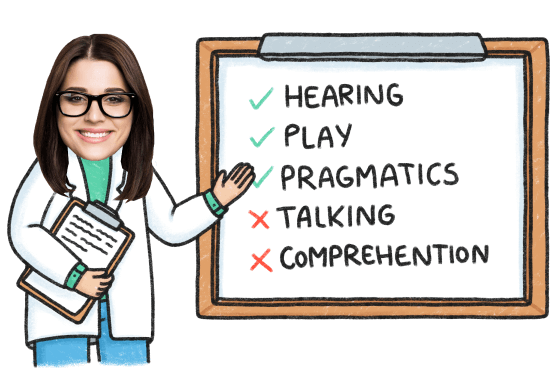How to Foster an Early Love of Reading
Jan 15, 2022 Reading books with your child is not just enjoyable, it gives a family time to bond together. It also provides health benefits beyond increasing a sense of imagination in children. When you begin reading to a child at an early age, you foster an early love of books and reading.
If you start a routine of reading to your child, you provide health and development benefits that last a lifetime! To help create a love of literature, here are seven easy ways to encourage an early love of reading in your child.
Start Young
To start a love of reading, start young. The more you read to a child from an early age, the more likely he or she is to read over the course of their life. So how early should you start reading to your child? As early as possible!
A 2017 study conducted by Pediatric Academic Societies found mothers who read to their babies in early infancy increased vocabulary, language, and literacy skills that lasted four years. The same study also discovered that it’s not the number of books you read to a child, but the quality of the books read. In the case of boosting child development, less is more when it comes to reading.
I love reading and have a great appreciation for literature! I wanted to pass that on to my children from an early age. Since babies in the womb begin to hear by 18 weeks, I started reading out loud whatever book I was reading. Any articles I wrote, I read them out loud while making corrections when I was pregnant.
Although it may seem silly, it’s never too early to start encouraging your child to read!

Show a Child Your Love of Reading
Children learn by imitating. As early as 15 months old, children have the cognitive skills to imitate a behavior they see. To be able to imitate a behavior, a child needs to be mobile and have hand-eye coordination. This is the perfect time to introduce a love of reading to your child!
When your child sees you read a book you’re sharing the idea that books are enjoyable and your child will begin to imitate reading. To help with further imitation, take a break to read a book and place books in front of your child to help him or her understand it’s “reading time.” Eventually, your child will begin to pick up the book, turn pages, and pretend to read.
Take a Trip to the Library
When you take a trip to the library with your child, you’re giving them access to books. The more access to literature there is, the more likely your child is to read early on in life. While going to the library provides a variety of book selections, many libraries also have planned activities centered around helping children fall in love with reading.
Check with your local library to see if they offer a preschool reading hour. This allows children to sit and listen and experience a new book with their peers. Research shows that preschoolers who attend reading hour at a library have greater pre-reading and literacy skills compared to their peers who didn’t go to a library regularly.
Listen to a Story
You don’t have to pick up a book to read a story. A love of reading can further be encouraged by listening to a story.
Today, it’s hard to find time to sit and read a good book. Many people read on the go with the help of audiobooks. Children’s books are available in audio form at your local library or with a subscription to an audiobook service.
Boost Your Child’s Speech Development!
Improve language & communication skills with fun learning!

A 2015 research study found listening to a story through headphones had an increased effect on the imagination. MRI scans of preschooler’s brains were taken while they listened to stories via headphones. The MRI scans showed increased activity in the brain’s area responsible for reading, oral language, and mental imagery.
Audiobooks make it easy for children to develop an early love of reading. Simply, turn on an audiobook before naptime or better yet, ask Alexa to play your child’s favorite book!
Make Storytime Fun
The more fun you make reading, the more your child will grow to love reading. The next time you read a story to your child try incorporating these techniques to make the book more entertaining.
- Add sound effects to correspond to the story
- Pause to ask your child questions about the story. For example: “What do you think the princess should do?”
- Act out a story with movements
- Act out a story with finger or hand puppets
- Use the tone of your voice to promote excitement about the story
- Play dress-up to match the story
These are just a few ideas to get you started on helping your child find a love for reading!
Read about Your Child’s Interests
To foster a love of early reading and increase your child’s vocabulary and literacy skills, you need to find what interests your child most. If your child likes cars or princesses, read books centered around cars and princesses.
If your child is under two and you’re not sure what his or her interests are yet, try taking your child to a library and checking out a variety of children’s books.
For children under the age of two, I’ve found the best way to gain their attention with books at a young age is by reading touch and feel books and books with sound effects. Both types are extremely interactive for children and provide a sensory experience for them.
Turn Off the TV
By turning off the TV for all reading activities, you’re eliminating distractions. Children have short attention spans. By creating a quiet reading time, you’re assured your child will not be distracted by technology and background noise.
This allows a child to focus on creating mental images in their mind which fuels the imagination. Only hearing the words to a story (with no distractions) helps a child develop a more diverse vocabulary.
Research shows that reading to children before the age of two doubles their vocabulary compared to children who were only read to after the age of four.
So start reading out loud in a quiet, distraction-free environment to help create both a love of reading and an enhancement in vocabulary.

Conclusion
Reading has the potential to enhance a child’s life! Not only does it increase vocabulary and literary skills to prepare them for school, but books to help children understand meaningful values like . . .
- Compassion
- Friendship
- A sense of right and wrong
- Empathy
- Generosity
- Friendship
- How to be yourself
- Honesty
And so much more! Reading to your child from an early age will help them develop a love and passion for books and even writing their own stories one day!
Have a question for our Speech Therapists?

